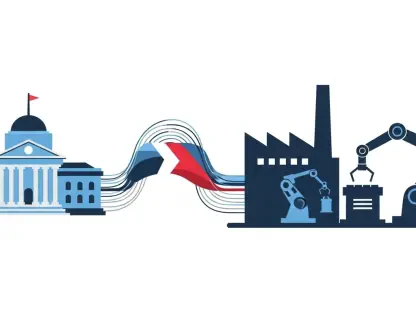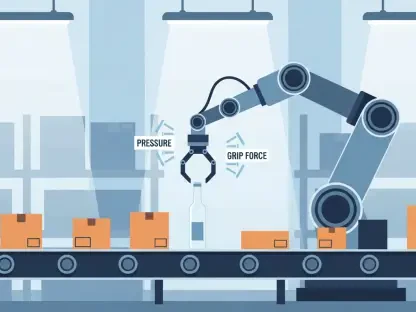Amid the economic upheaval caused by tariffs on imports, companies, particularly in the automotive industry, face a pressing dilemmwhether to collaborate with or confront their suppliers. The financial strain imposed by these tariffs forces businesses to reassess their procurement strategies and supplier relationships. The case of General Motors (GM) illustrates the broader industry trend of adopting a confrontational approach, enforcing strict contractual terms to resist price increases even under worsening market conditions. However, such an approach raises questions about its long-term sustainability and impact on profitability and supply chain stability.
Historical Approach and Its Consequences
Historically, GM has exemplified a rigid approach towards its suppliers, prioritizing short-term financial gains. This strategy is evidenced by several incidents, such as the financial dispute with Clark-Cutler-McDermott Co., which ultimately led to the supplier’s bankruptcy despite being a critical component provider. Such instances highlight the inherent risks and long-term costs associated with poor supplier relationships, including potential disruptions in production and significant financial losses. These outcomes suggest that while a confrontational approach may yield immediate cost savings, it also exposes firms to substantial operational risks.
Further examination of the automotive sector reveals that fostering positive supplier relationships could significantly enhance financial performance. A 2015 study by Planning Perspectives Inc. (PPI) indicated that major automakers like Ford, GM, FCA US, and Nissan could have collectively earned $2 billion more in operating profit if they had improved their supplier relations to the levels seen at Toyota and Honda. This data underscores the substantial financial benefits that can emerge from cultivating strong, long-term partnerships with suppliers—benefits that go beyond mere cost savings to include improved product quality, greater innovation, and more stable supply chains.
Industry-Wide Strategies
The preference for stringent supplier negotiations is not limited to the automotive industry. Major corporations such as Walmart, Target, Amazon, and Apple have also favored aggressive tactics to secure favorable deals. However, this often leads to compromised product quality, increased production costs, and, in some cases, supplier bankruptcies. These downstream issues contribute to a larger conversation about the efficacy and sustainability of confrontational supplier management strategies, especially in an era where global trade dynamics are increasingly volatile.
Experts in supply chain management suggest that a more collaborative approach could mitigate many of these risks. By fostering partnerships rather than adversarial relationships, companies can achieve greater supply chain resilience, ensure the consistent quality of products, and navigate economic challenges more effectively. Collaboration could involve shared investments in new technologies, joint efforts to improve production processes, and more flexible contract terms that account for fluctuating market conditions.
The Financial Benefits of Collaboration
The financial benefits of a collaborative supplier relationship extend well beyond immediate cost savings. Positive supplier relations can pave the way for innovation, higher product quality, and more reliable delivery schedules. This improved cooperation results in fewer production delays, better market responsiveness, and an overall enhancement in brand reputation. Moreover, companies that invest in supplier relationship management tend to experience a more stable supply chain, which can be particularly valuable during periods of economic uncertainty caused by factors like tariffs.
By comparison, a combative approach to supplier management often leads to a vicious cycle of diminished trust, lower quality, and heightened operational risks. Suppliers under constant financial pressure may resort to cost-cutting measures that compromise quality and increase the likelihood of defects and recalls. These issues ultimately make confrontational tactics less sustainable for long-term profitability and brand loyalty.
Looking Forward
The economic disruptions caused by tariffs on imports have put companies, especially in the automotive sector, in a difficult position. They must decide whether to work with or challenge their suppliers. The financial burden from these tariffs compels businesses to rethink their procurement methods and supplier relationships. A clear example is General Motors (GM), which epitomizes the industry’s broader trend towards a confrontational stance. GM is enforcing stringent contractual terms to counteract any attempts by suppliers to raise prices, even as market conditions deteriorate. This hardline tactic, however, prompts questions about its long-term viability and potential effects on profitability and the stability of supply chains. The challenge lies in balancing immediate financial pressure with the need for a stable and cooperative supplier network, which is essential for sustainable business operations and growth. How companies navigate this balance could significantly influence their future success and resilience.









